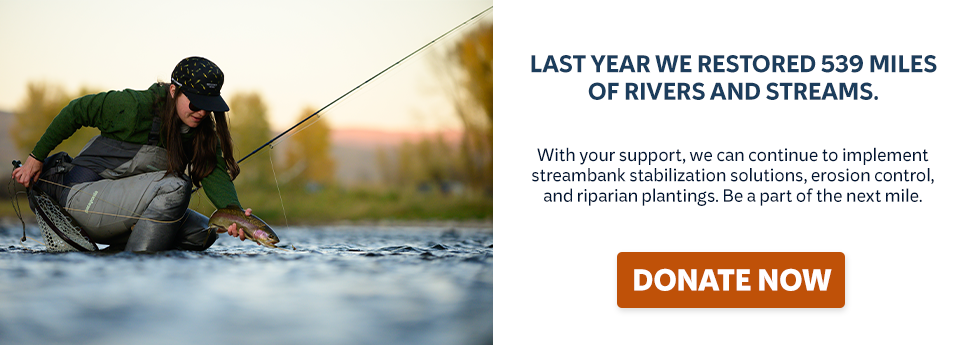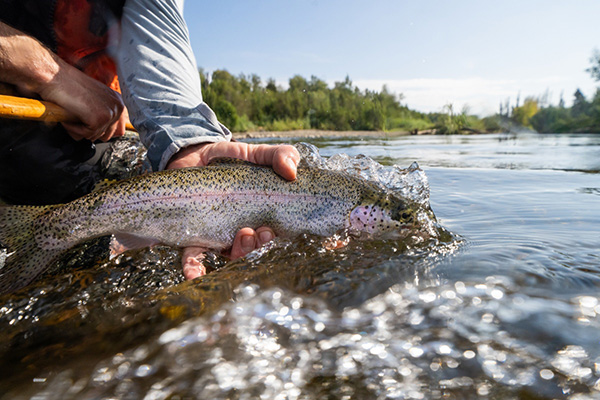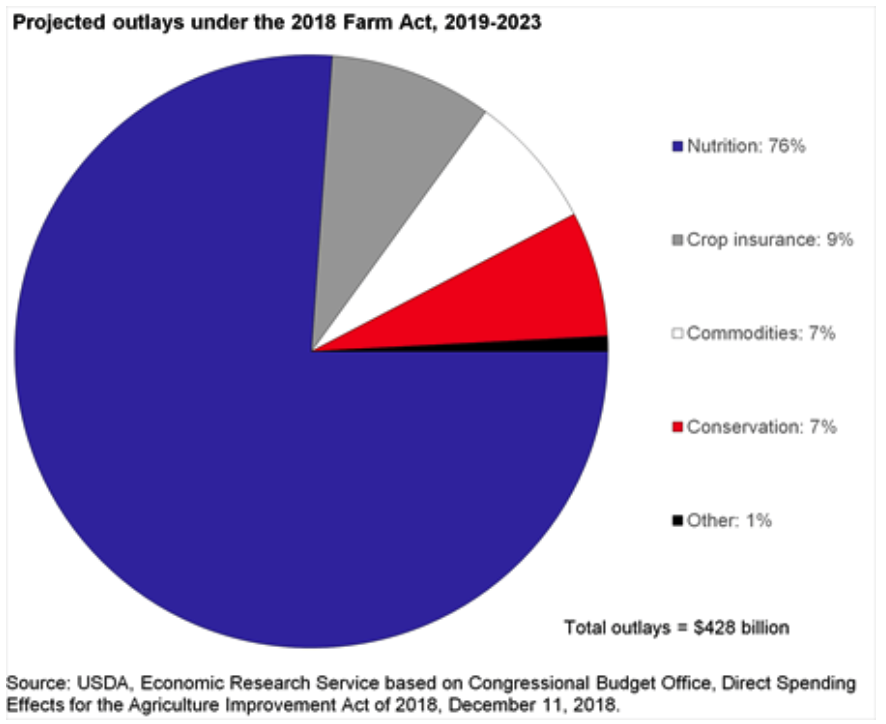Along with the on-the-ground project work and agency relationship-building we focused on in the last two posts, TU also works for legislative change that improves habitat, provides tools to respond to drought, preserves a thriving agricultural economy and works toward water security in the West.

One of the legislative vehicles through which we work is the Farm Bill. This omnibus law is renewed every five to six years and covers a wide range of programs from crop insurance to commodity support to the Supplemental Nutrition Assistance Program (SNAP, formerly known as food stamps). It also includes the Conservation Title, which governs a number of programs that provide assistance to agricultural producers through the Natural Resources Conservation Service (NRCS) and Farm Services Agency (FSA) to address environmental issues such as water quality and quantity, soil health and fish and wildlife habitat.
Each installment of Western Water 101 will be accompanied by a podcast, released weekly. Find the fifth episode below, and subscribe to get each new episode as it’s released.
TU relies on the programs under the Farm Bill’s Conservation Title to support our on-the-ground project work. These programs provide federal funding for projects on ranch and farmland for the important restoration work TU does to protect our coldwater fisheries. In the West, this includes projects like installing fish screens on systems that divert water from streams to irrigated fields, upgrading aging irrigation infrastructure to more efficient technologies and restoring habitat in riparian areas.
The most recent Farm Bill, the Agriculture Adjustment Act of 2018, is also the most western-facing Farm Bill to date, due in part to the work of TU’s policy staff and our Government Affairs team. The new provisions included in the legislation to address drought in the West also help the region respond to the twenty-first century challenges the region faces, including climate change and threats to water security. They also help answer the age-old question of how best to manage and use the water that the West has to meet the twenty-first century needs of agriculture, cities, fish and wildlife and recreation.
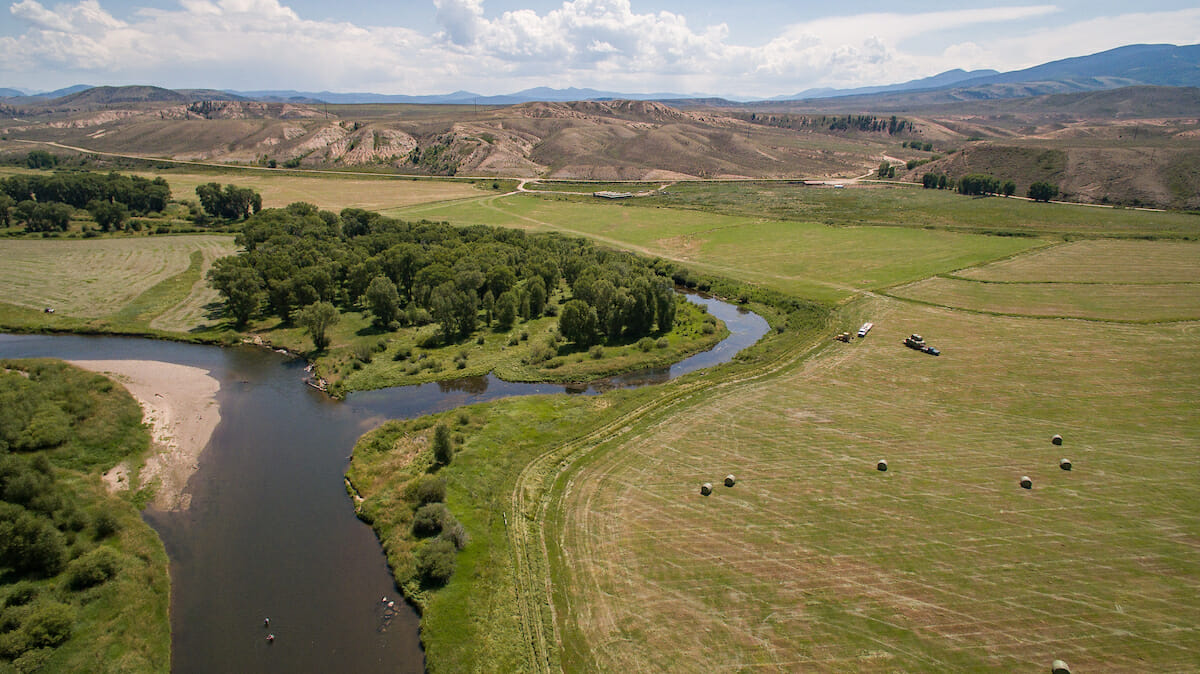
To help make legislative change like this, TU’s policy staff works hard to build relationships with members of Congress and congressional committee staff to effectively communicate the needs of farmers, ranchers and TU project staff who work with these programs on the ground. These meetings and conversations with government representatives based in Washington, D.C. and at regional offices throughout the West provide TU with an opportunity to showcase the work that our staff does in the West to protect and restore our coldwater fisheries and to communicate what we as an organization learn about the challenges and opportunities of implementing Conservation Title programs. The stories and expertise we share translate into legislative change that improves how these programs function and their ability to deliver real conservation benefit to the West.
We can see the result of this work in the 2018 Farm Bill’s ability to confront the ever-present threat of drought in the West. The legislation included a number of new provisions that allow existing Conservation Title programs to more effectively respond to the unique needs of the West. These new provisions include:
Canal/Ditch Company & Acequia Eligibility for EQIP Funding:
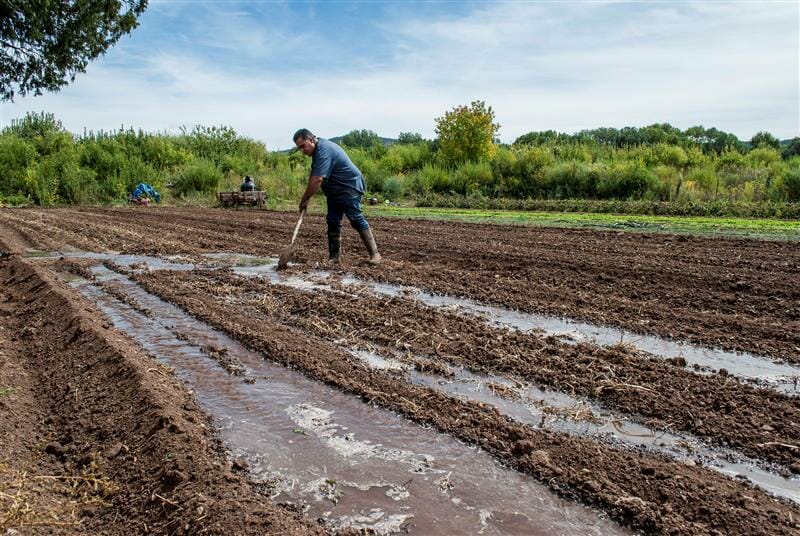
Until the 2018 Farm Bill, only individual producers were eligible for funding for private-land conservation projects from the Environmental Quality Incentives Program (EQIP). Canal and ditch companies and local collectives like acequias represent small to mid-sized water management organizations that have been traditionally overlooked by funding sources; EQIP has covered individual farmers and ranchers while the Bureau of Reclamation has funded projects by larger irrigation districts and municipal water providers. Authorizing EQIP to fund projects by these smaller water management entities allows them to replace aging and inefficient infrastructure by providing funding for lining ditches or updating old equipment; address issues of equity by funding projects led by acequias, which serve historically underserved populations; and restore fish and wildlife habitat which contribute to increased ecological health. In order to receive funding under this provision, these projects must, by law, be a “watershed-wide project that will effectively conserve water, provide fish and wildlife habitat or provide for drought-related environmental mitigation”—all of which help address basin-wide water security in the West.
Higher Cost-Share Rates for High Priority Practices:
The 2018 Farm Bill authorized higher project cost-shares for projects that use high-priority EQIP practices, or specific, on-the-ground methods that produce conservation benefits. Practices that address water conservation, drought, and declining groundwater levels and are identified by a state as a high-priority practice qualify, meaning that these projects can have up to 90% of their cost covered by the NRCS (rather than the usual 50%). This provides greater incentive for producers to use practices that address water security, thereby benefiting the whole watershed.
Authorization of “Watershed Scale” Projects under RCPP:
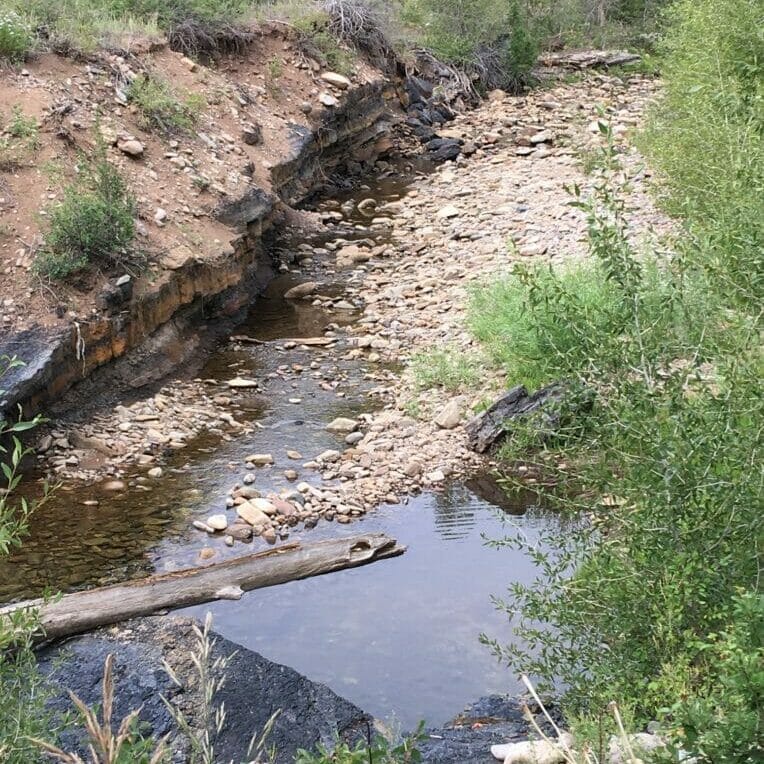
The 2018 Farm Bill authorized the Regional Conservation Partnership Program (RCPP) to provide up to 15 grants annually for “watershed scale” projects. This allows for conservation work that reflects the cultural movement toward using the watershed or basin perspective to address water security and ecological health issues rather than relying on individuals to undertake valuable yet smaller-scale conservation projects. Addressing drought is one of the stated purposes of these projects, and this dedicated funding for innovative and creative projects will help accelerate the response to drought and water security concerns in the region. Other changes to RCPP to provide more support for conservation innovation and impact include: tripling the funding for the program; authorizing funding for conservation practices other than EQIP or other established practices; requiring monitoring of conservation outcomes; and, prioritizing conservation outcomes in the selection of projects.
CREP Payments for Conversion to Dryland Farming & Grazing:
The Conservation Reserve Enhancement Program (CREP) is a long-term land rental program run by the Farm Service Agency (FSA) that provides payments to producers for removing land from production and implementing conservation practices. The 2018 Farm Bill authorizes the use of CREP for converting irrigated agricultural land, such as irrigated pasture or alfalfa, to non-irrigated farming provided that this conversion results in, by statute, “significant, long-term reduction of consumptive water use.” This new authority for CREP has the potential to effectively reduce the amount of water used by agriculture in the West in a way that continues to support the agricultural economy and does not take land out of agricultural production, while contributing to basin-wide and regional water security.
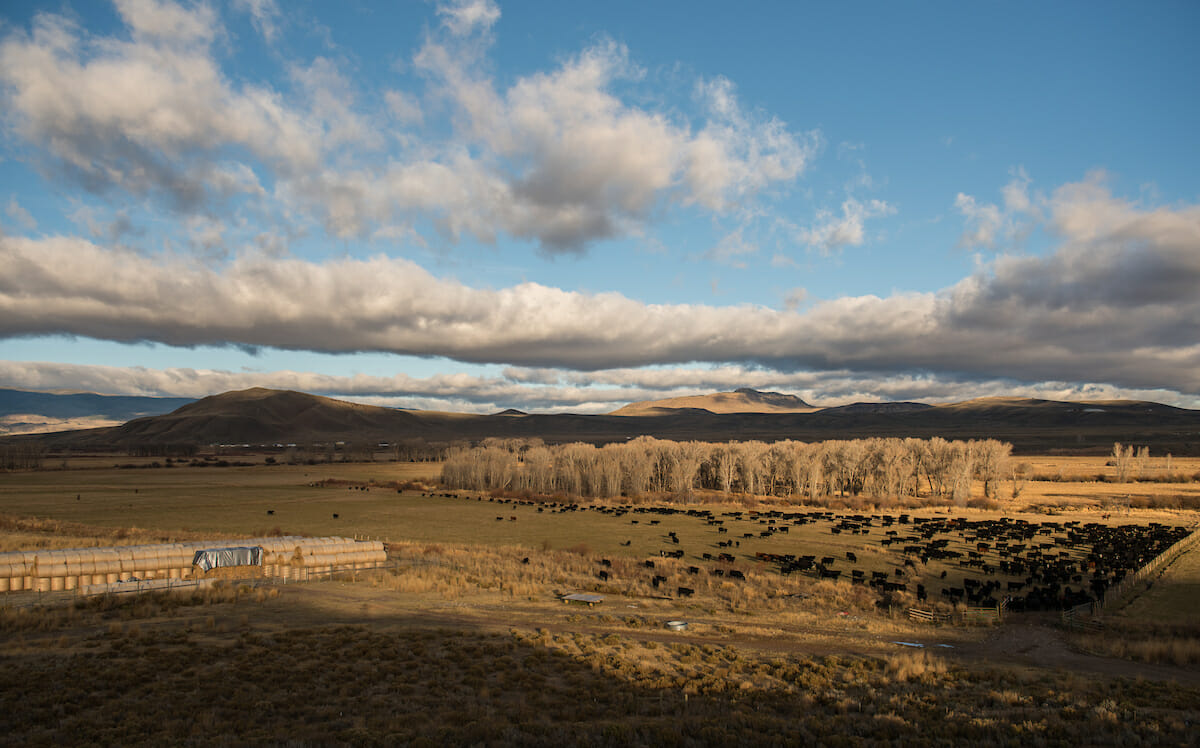
In August of 2019, eight months after passage of the 2018 Farm Bill, eleven western Senators sent a letter to the Secretary of Agriculture, Sonny Perdue, supporting these western-facing provisions and the urgency with which the U.S. Department of Agriculture, which oversees the NRCS, should implement them. Drought accounts for $4 billion in crop insurance payments annually and, as the Senators noted, “is now the single largest cause of U.S. farm production losses.” Expected outlays under the entirety of the Conservation Title are estimated at approximately $5.8 billion per year over the next five years, only a portion of which would fund key drought provisions authorized by statute in the 2018 Farm Bill. Implementing these western-facing drought provisions within the Farm Bill would help avoid the detrimental financial impacts of a drought throughout the West and prevent the need to respond—with greater financial burden—in the middle of a drought.
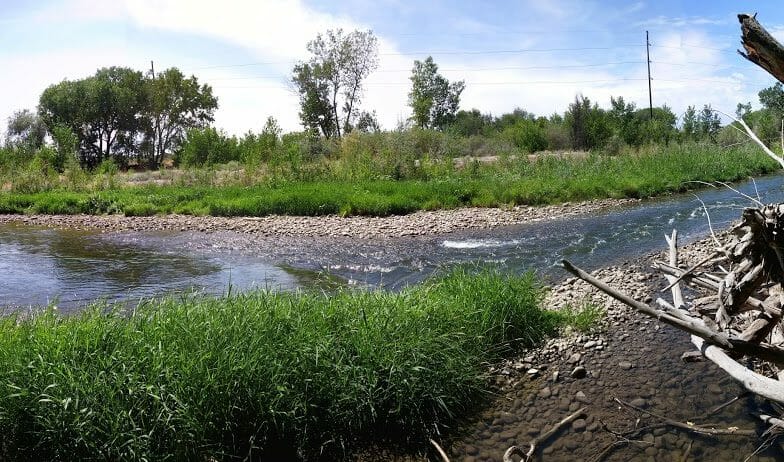
However, despite their inclusion in the 2018 Farm Bill and their potential to proactively address drought, many of these provisions have not been implemented into agency programs in an effective way, if at all. For example, the FSA declined to implement the CREP dryland agriculture conversion authority at all, and other provisions have not been fully implemented to date. TU’s legislative efforts for this and the next Farm Bill will focus on ensuring that these drought provisions will be implemented to their fullest extent to address the challenges facing the twenty-first century West.
Table of Contents
Western Water 101
- Introduction to Western Water
- Conflict to Collaboration
- TU’s On-The-Ground Projects & Natural Storage: How Flipping the System Benefits People & the Environment
- TU’s Work with Federal Agencies: How Our Research Advocates for Change in the Bureau of Reclamation
- TU’s Work for Legislative Change
- Wrap-up: The state of our hydrology today in the Colorado River Basin
- Take Action

